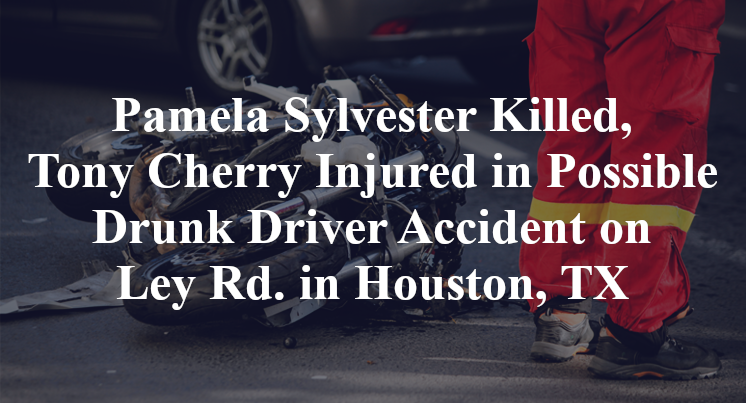Pamela Sylvester Killed, Tony Cherry Injured in Possible Drunk Driver Accident on Ley Rd. in Houston, TX
UPDATE (April 17, 2025): Recent reports have been released which identify the victims of this accident as 52-year-old Pamela Sylvester and 45-year-old Tony Cherry. No additional details are currently available. Investigations continue.
Houston, TX — April 13, 2025, one person was killed and another was injured in an alleged drunk driver accident shortly before 1:00 a.m. along Ley Road.
According to authorities, a man who was allegedly under the influence was apparently asleep in a halted Chevrolet SUV in the intersection of Ley Road and Roadhouse Lane when the accident took place.

Officials indicate that, although a motorcycle occupied by two people swerved in an attempt to avoid a collision with the stopped vehicle in the active lanes of the roadway, both occupants were ejected. The person who had been a passenger on the motorcycle reportedly suffered fatal injuries and was declared deceased at the scene. The other occupant of the motorcycle sustained injuries of unknown severity, as well, and was transported to a local medical facility by EMS in order to receive necessary treatment, according to reports.
News reports state that the man who had been behind the wheel of the stopped vehicle may be facing charges in connection with the wreck. Additional details pertaining to this incident—including the identities of the victims—are not available at this point in time. The investigation is currently ongoing.
Commentary
When reports indicate that someone was allegedly drunk and stopped in the middle of a road in the early hours of the morning, leading to a deadly motorcycle crash, it raises serious questions—chief among them, how did that person end up behind the wheel in that condition?
In many cases involving suspected intoxication, public attention turns to the driver’s actions. But what’s often overlooked is whether someone else contributed to the danger by serving that driver alcohol after it was clear they’d had too much. That’s where Texas’s dram shop laws come in.
Under those laws, bars, restaurants, or any alcohol provider can be held liable if they serve someone who is obviously intoxicated and that person goes on to harm others. This legal framework exists because overserving isn’t just bad judgment—it’s dangerous and illegal.
In my experience, bars that overserve don’t stop after one or two questionable drinks. They often keep serving long past the point where the signs of intoxication are clear. And when that happens, the risk doesn’t stay in the bar—it follows that customer out the door and into situations like this one.
Unfortunately, investigations rarely focus on where the alcohol came from. Whether due to limited resources or other priorities, the question of overservice often goes unanswered. But when someone is found asleep behind the wheel in an active roadway, that’s not just an accident—it may be a sign that a bar or other provider ignored their legal responsibilities.
Getting to the bottom of what happened matters—not only for those directly affected, but for the broader effort to prevent these kinds of crashes in the future. Every time an alcohol provider is held accountable for overserving, it sends a message that the law has consequences.
From where I sit, families affected by a crash like this deserve the full story. Figuring out where the driver was drinking is one of the most important steps we can take to help them get answers—and to ensure real accountability.

*We appreciate your feedback and welcome anyone to comment on our blog entries, however all visitor blog comments must be approved by the site moderator prior to showing live on the site. By submitting a blog comment you acknowledge that your post may appear live on the site for any visitors to see, pending moderator approval. The operators of this site are not responsible for the accuracy or content of the comments made by site visitors. By submitting a comment, blog post, or email to this site you acknowledge that you may receive a response with regard to your questions or concerns. If you contact Grossman Law Offices using this online form, your message will not create an attorney-client relationship and will not necessarily be treated as privileged or confidential! You should not send sensitive or confidential information via the Internet. Since the Internet is not necessarily a secure environment, it is not possible to ensure that your message sent via the Internet might be kept secure and confidential. When you fill out a contact or comment form, send us an email directly, initiate a chat session or call us, you acknowledge we may use your contact information to communicate with you in the future for marketing purposes, but such marketing will always be done in an ethical way.